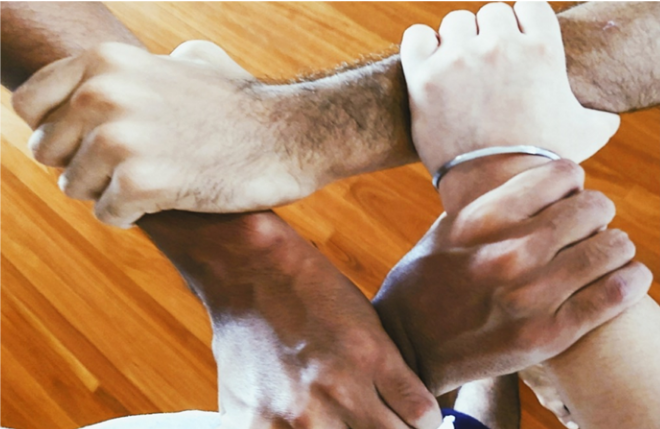The Power of Diversity in Media
Photo: Vidita Sharma
Lebanese Australian journalist Antoun Issa calls for the media industry to address the under-representation of culturally and linguistically diverse journalists in mainstream media.
“When I started off, I knew I would face many challenges by virtue of me just being a brown migrant from a low-income family and not having the connections I need to get me a job in the media industry,” Mr Issa said.
He said there is a sense of privileged class hovering around politics and media which is predominantly white as they still have control over recruitment avenues in Australian media.
“I didn't have access to certain facilities because I didn't have the connections, and didn't come from a privileged background. Hence, I found the challenge even more daunting,” Mr Issa said.
In an article for The Guardian, Mr Issa thinks social media played an important role in allowing diverse voices to create an avenue to be presented in the society, which challenged the mainstream media to keep up.
“For me, journalism wasn't so much about the craft, it was more about the issues. So, if you're someone who's driven by issues, then I would say make it your angle and niche, because ultimately, if you’re a journalist from a diverse background, you will have to build your own brand,” he said.
Latin American journalist and academic Dr Antonio Castillo said the lack of cultural diversity in the news media acts as a major factor in racism, lack of understanding, and the spread of stereotypes and racist attitudes.
“You will see that there are very few faces that tell a story of cultural diversity in Australia. The narrative is very white, monocultural, and monolingual. I personally think the narrative is poor,” Dr Castillo said.
He said the plans to overcome the lack of culturally diverse journalists in newsrooms is nothing new. It happens often, but not much change is observed.
“I believe young people can bring a fresh approach to culturally and linguistically diverse news,” he said.
Dr Castillo shared a powerful anecdote of his experience working for ABC Sydney, where he asked the chief of staff about cultural diversity in their newsrooms.
“The only cultural diversity you will see in ABC is in the cleaning department, nowhere else.” said the chief of staff at ABC Sydney, responding to Dr Castillo’s question.
Australian-born journalist Janak Rogers holds dual Australian/British citizenship and right of abode in India. He feels the media industry is tough to break into at the best of times, but particularly when you're a person of colour, or have an “exotic surname”, or whatever it is that makes you seem slightly "other".
“If you’re a person of colour coming from a diverse background in this country, and you look around and find that there's nobody on television who looks like you or sounds like you, then you end up feeling alienated and further disenfranchised,” he said.
African American journalist Elias Clure feels it is important for people, who essentially ask questions and distribute information on behalf of the community, to actually reflect what the community looks like.
“I remember when I first got work experience. There was no one of colour at the Herald Sun, but that's where I wanted to work from when I was quite young," said Mr Clure.
“And I thought that the Herald Sun would never hire me because I'm not a white guy. So, I think if there had been someone of colour at the Herald Sun, I would have thought that maybe there is some hope for me.”
He thinks news organisations should work on attracting more diversity, perhaps then more people from diverse backgrounds will watch and appreciate the news. It would also offer the potential for them to tell different stories.
Afghan Australian writer Mahmood Fazal said a lot of diverse writers are just not being hired or they might not have the skills, which is a social and systemic problem.
“Muslims in particular, are being spoken about, not spoken to," he said
“When that happens, a lot of these stories are diluted and often don't have a comprehensive view.”
Mr Fazal feels there is a constant angst of voicing their opinion and keeping your job, as a person of colour.
“The nature of being someone that's culturally and linguistically diverse is that you constantly feel as though some things are better left unsaid,” he said.
Mr Fazal won the Media Diversity Australia Award administered by the Walkley Foundation in 2020.
Gomeroi woman and award-winning Indigenous Affairs journalist Madeline Hayman-Reber said Australia has a rich and diverse community of many cultures, yet people seem to only hear about things from the perspective of a white person who hasn't experienced many of the things they are speaking about.
“We need to be hearing stories from the perspectives of the people it affects, not a white washed version," she said.
“I want every child from a diverse background to one day be able to turn on the TV, or go online, and see someone who looks and sounds like them, and know that one day they too can work in the media.”
